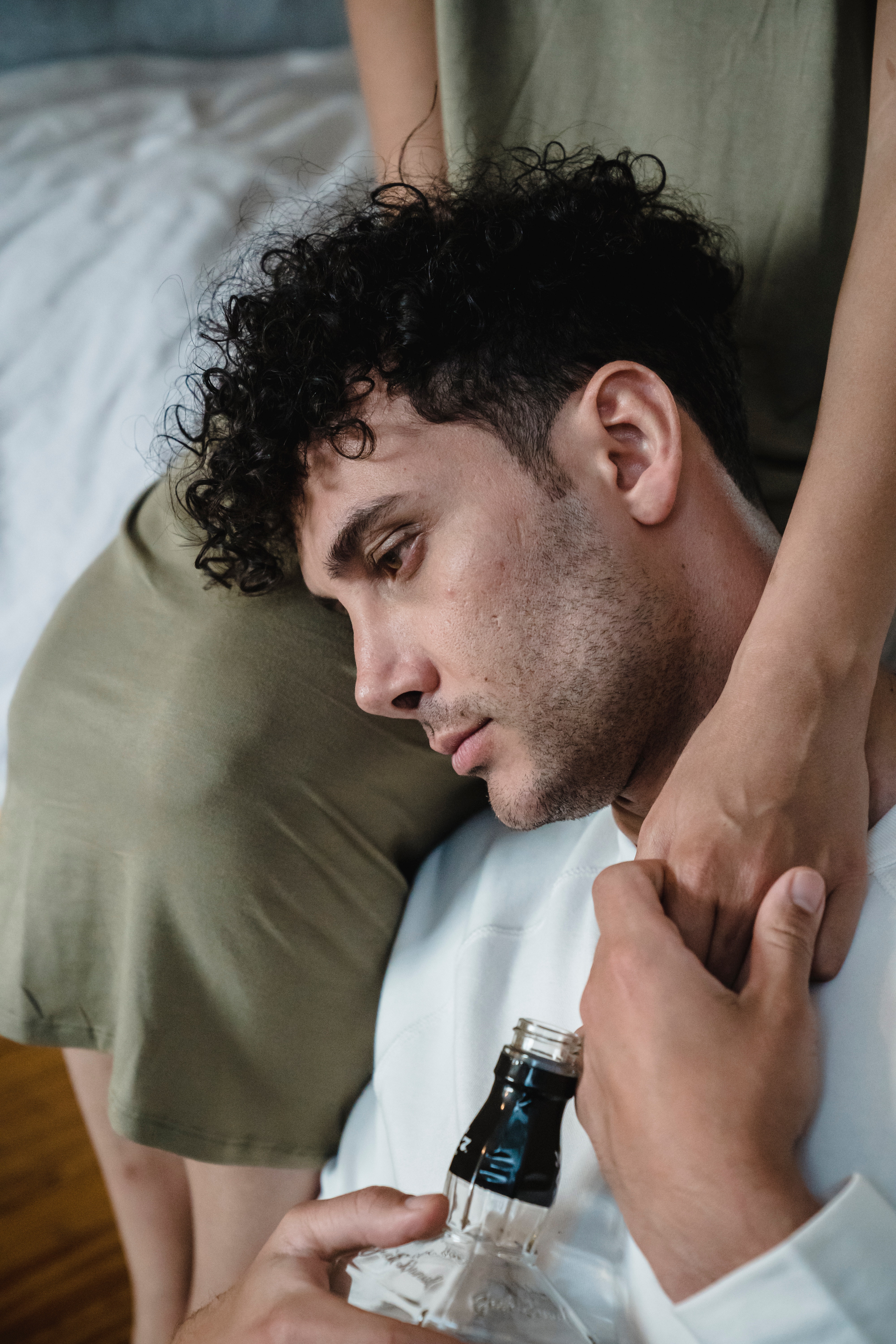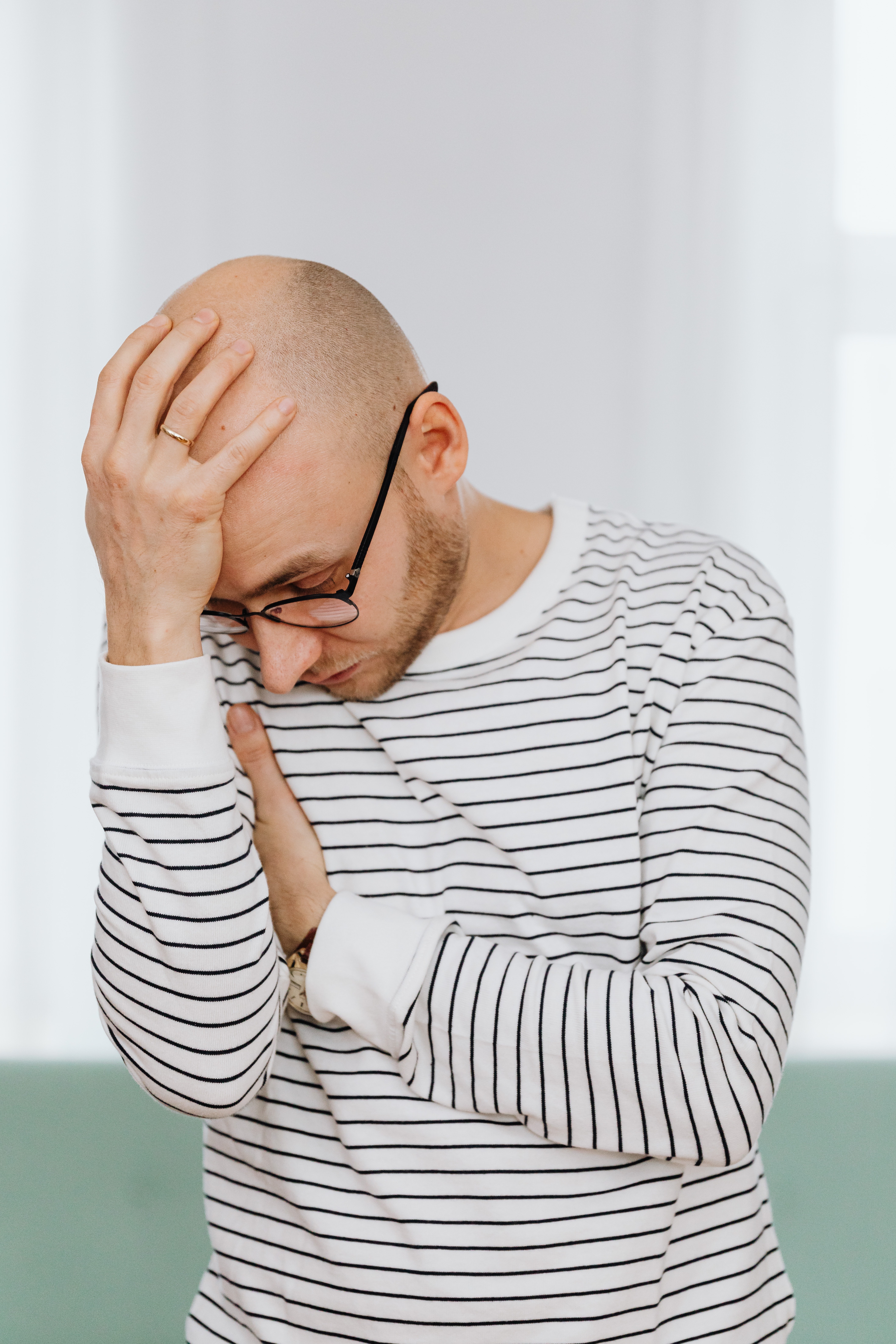
Tom woke up, his head pounding, and he ached all over. The dark cloud that followed him everywhere was back. The partying last night gave him a brief reprieve, but it was over. He slowly dragged himself out of bed and thought about how disappointing it was that he woke up. He didn’t realize he was playing with fire, or that alcohol and substance misuse increase suicide risk.
The nagging wish to stop living like this wrapped itself around him and through him to his core. It wasn’t the booze and pills that he wanted to be free of. It was the darkness, the pit, the vacant emptiness, the ache.

His lifestyle of repeatedly over indulging, getting high, and oblivion was the one thing that gave him minutes of relief.
Minutes when he felt good for a change.
Tom drank a couple mugs of coffee to try to clear his head, took a shower, and headed to his job. He had a degree in business management, but since the depression and anxiety had gotten so much worse, it flattened his ambition. He was just hanging on. Trying to get through the day. In fact, he held on to get through the hour…the slow, dragging minutes.
By lunchtime he didn’t know if he could get through the day, but he needed this paycheck. So he had to endure…and thought about what he would do after work to feel better. He started planning in his head to occupy his mind. That was a whole lot better than just slogging through work.
That night, Tom met up with friends he sometimes partied with. He contributed a bottle of bourbon, malt whiskey, and a case of beer he put on ice. The other two friends brought more of the same, plus some pills.

Tom hated the morning after. He always did. But the whole purpose was to construct relief. Respite from his misery. And this time was no different. He wanted to drown his pain. So he popped pills, guzzled beer and slammed shots with abandon.
However, this time he didn’t wake up with his head pounding. The “blackout” that followed all that he swallowed pulled him into a coma. One of his friends woke up from his own stupor and couldn’t wake Tom or his other friend. He called 911.
Their friend was pronounced dead at the scene, and Tom was rushed to the hospital where emergency personnel fought for his life.
After 2 weeks in the ICU, Tom began to gain consciousness. They told him his alcohol poisoning was nearly fatal, which was really hard for him to grasp. But it was even worse realizing his friend William had died that night.
Were they trying to end their lives? Had they tried to die before and — since it hadn’t happened — did they think they were indestructible? Was it really “partying” or was it flirting with death, in hopes of escaping their misery..?
These are questions that surround the growing numbers of people who misuse alcohol and substances… and die as a result. Do they realize that alcohol and substance misuse increase suicide risk?
Is an overdose suicide or an accident?

September is National Suicide Prevention Month. Research has illuminated the complicated relationship between alcohol use disorder, substance use disorder…and suicidal thinking, suicide attempts, and suicide deaths. The purpose of National Suicidal Prevention Month is to inform society and equip you to recognize risk factors among your own friends, family, and coworkers.
For a long time we’ve recognized that alcohol and substance use disorders are associated with suicide risk. And when substance use is combined with alcohol use, there is a much higher risk of fatalities by suicide.
When you consider that alcohol and substances are widely used to self medicate symptoms that may not have been addressed and treated, it makes sense to treat the symptoms and talk openly about suicidal thoughts that can be stopped by IV ketamine.
Alcohol and substance misuse are not the only risk factors for suicidal thinking or fatalities —but they can increase risk of suicide a hundred fold.
A hundred fold greater risk. That’s staggering.
When you identify these risk factors in the life of someone you care about, you can save a life by opening up conversation about suicidal behaviors and thoughts.

Talk about the symptoms that lead to self medication — because there is hope through treatment of those symptoms.
And IV ketamine can stop suicidal thoughts in a few hours. And allow you time to seek the treatment that will make your life better.
If you’re experiencing suicidal thoughts or plans, call 988, the National Suicide Hotline.
Someone who understands what you’re feeling is waiting to talk with you.
If you’re plagued by thoughts of suicide and want to seek IV ketamine treatment to stop those thoughts, call us.
IV ketamine can stop those thoughts in an afternoon, and buy you time to seek treatment and counseling for a more rewarding life.
We’re here to help.

To the restoration of your best self,
